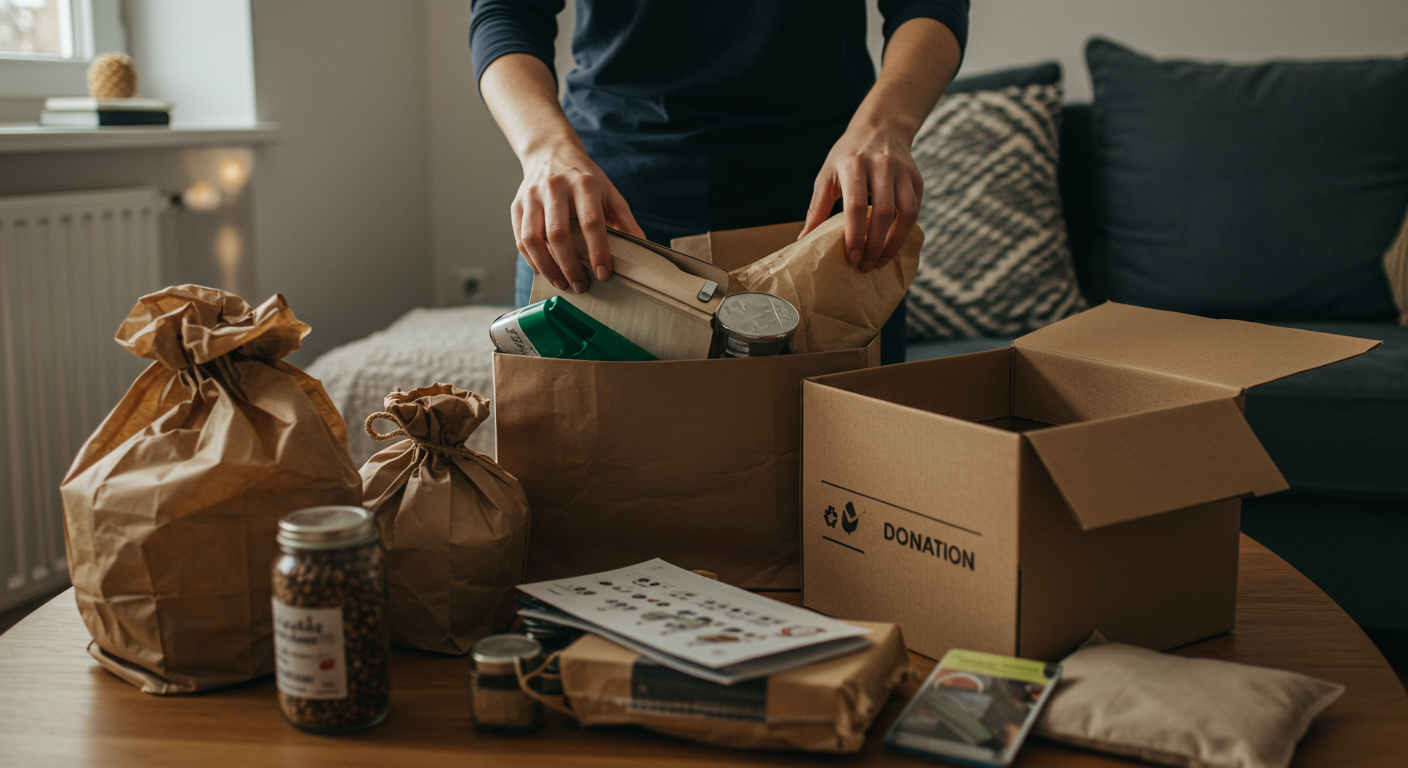Are you ready to transform your home and your habits? Decluttering isn't just about creating more space; it's a powerful pathway to a more sustainable lifestyle. By consciously reducing what we own, we minimize waste, conserve resources, and embrace a more eco-friendly approach to living. This guide will walk you through practical steps to declutter your home, reduce your environmental footprint, and cultivate a more mindful existence.

Deep Dive into Decluttering for Eco-Conscious Living
For those already on the path to sustainable living, decluttering offers a chance to deepen your commitment. It goes beyond the surface level, allowing you to examine your consumption habits and align your possessions with your values. This advanced approach involves making thoughtful choices about what stays and what goes, fostering a more intentional relationship with your belongings and the planet.
Advanced Strategies and Insights
Assess and Evaluate: The Heart of Decluttering
Begin by honestly assessing the items in each room. Ask yourself: Do I use this? Do I love this? Does it serve a purpose? Be realistic about what you truly need and what can be let go. Consider the environmental cost of each item. Where did it come from? What resources were used to make it? What will happen to it when you no longer need it? This line of questioning can change your perspective.
Room-by-Room Decluttering: A Systematic Approach
- Kitchen: Tackle excess gadgets, duplicate utensils, and expired food. Consider donating unused appliances and opting for reusable food storage containers. Make it easy to eliminate single-use plastics.
- Living Room: Re-evaluate decor, books, and electronics. Donate or sell items you no longer use and consider digital alternatives for books and media.
- Bedroom: Declutter clothing, shoes, and accessories. Donate clothes in good condition, and recycle textiles that are beyond repair.
- Bathroom: Minimize the amount of beauty products and other items. Explore solid shampoo bars and other low-waste options.
Optimizing Your Sustainable Home
Donation and Resale
One of the best ways to keep items out of landfills is to donate or sell them. Identify local charities, donation centers, or online platforms that accept the items you no longer need. Consider selling items through online marketplaces to give them a new life and earn extra money.
Mindful Shopping
Decluttering is a continuous process. Prevent future clutter by adopting mindful shopping habits. Before making a purchase, ask yourself if you really need the item, where you will store it, and how long it will last. Choose quality over quantity, and prioritize items that are durable, repairable, and made from sustainable materials.
Case Study: Thriving on an Advanced Sustainable Path
Consider the story of Sarah, an eco-conscious consumer who transformed her home through decluttering. She started by tackling her closet, donating bags of clothes to a local shelter, and selling high-quality items online. She then moved on to her kitchen, replacing plastic containers with glass alternatives. By consistently applying these principles, Sarah created a home that is not only organized but also aligned with her values.
Navigating Complex Environmental Challenges
Decluttering helps address waste reduction, but other environmental challenges should be considered: energy consumption, water usage, and the carbon footprint of our possessions. Consciously consider these factors when making purchases and choosing what to keep. Prioritize items that are energy-efficient, water-saving, and made from sustainable materials.
Integrating Advanced Sustainable Practices
- Composting: Start a composting system to reduce food waste and create nutrient-rich soil for your garden.
- Upcycling & Repurposing: Before discarding an item, consider if it can be repurposed. Old t-shirts can become cleaning cloths, and glass jars can become storage containers.
- Repair, Don't Replace: Learn basic repair skills for your belongings to extend their lifespan. Explore local repair cafes or online tutorials.
Scaling Your Impact: Beyond Personal Choices
Decluttering helps to make a difference at an individual level but consider joining environmental organizations, supporting sustainable businesses, and advocating for policies that promote responsible consumption and waste reduction.
Expert-Level Green Living Insights
- The Minimalist Mindset: Cultivate a minimalist mindset that focuses on experiences and relationships rather than material possessions.
- Ethical Consumption: Research the environmental and social impacts of the products you buy. Support brands that prioritize sustainability, fair labor practices, and transparency.
- Continuous Improvement: Decluttering is a journey, not a destination. Regularly assess your belongings and consumption habits, and make adjustments as needed.